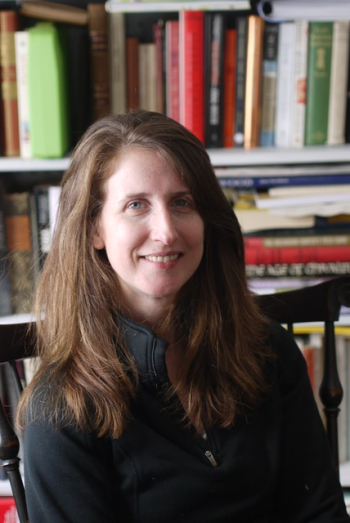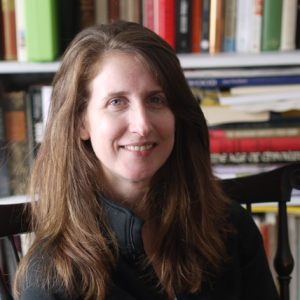Lincoln County Historical Association’s winter lectures return in February
 Kate McBrien explores the history of the Malaga Island Community in the late 1800s in the first talk of LCHA's 2023 Winter Lecture Series. Courtesy of LCHA
Kate McBrien explores the history of the Malaga Island Community in the late 1800s in the first talk of LCHA's 2023 Winter Lecture Series. Courtesy of LCHA
 Aimée Keithan looks at social issues and criminal biases as they affect criminalization and the lives of prisoners in early New England in two LCHA lectures. Courtesy of LCHA
Aimée Keithan looks at social issues and criminal biases as they affect criminalization and the lives of prisoners in early New England in two LCHA lectures. Courtesy of LCHA
 Kate McBrien explores the history of the Malaga Island Community in the late 1800s in the first talk of LCHA's 2023 Winter Lecture Series. Courtesy of LCHA
Kate McBrien explores the history of the Malaga Island Community in the late 1800s in the first talk of LCHA's 2023 Winter Lecture Series. Courtesy of LCHA
 Aimée Keithan looks at social issues and criminal biases as they affect criminalization and the lives of prisoners in early New England in two LCHA lectures. Courtesy of LCHA
Aimée Keithan looks at social issues and criminal biases as they affect criminalization and the lives of prisoners in early New England in two LCHA lectures. Courtesy of LCHA
A common thread that binds the three talks selected for this year’s LCHA Winter Lecture Series is that each speaker has delved deeply into Maine history to learn about certain communities of its people and the influences that shaped them. These stories are dramatic, intriguing, and surprising.
The talks will be held via Zoom on Feb. 2, 16, and 23 at 5:30 p.m. They are open to all, but pre-registration is required. Please visit www.lincolncountyhistory.org to receive a link. There is no charge, although donations are welcome.
Feb. 2 “Malaga Island”: Kate McBrien explores the true history of the community who lived on Malaga Island, off the coast of Phippsburg, Maine, in the late 1800s. This program examines the individuals who were part of this community and the State’s actions to evict them from their homes through the complex history of racism and eugenics in Maine.
Kate McBrien currently serves as Maine State Archivist, overseeing Maine State Government’s archives and records management programs. As curator of the award winning exhibition “Malaga Island, Fragmented Lives”, Kate is also an historian for the Malaga Island community. She previously held positions as Chief Curator and Director of Public Engagement at the Maine Historical Society and as the Curator of Historic Collections for The Maine State Museum.
Feb. 16 - “Put in their Place: Criminalizing the Other in Early New England”: Aimée Keeithan notes that Lincoln County’s history is full of stories of valour, of civic leaders, and of enterprising community builders. But the area’s history was also shaped by thieves, murderers, ladies of the night, and others accused of crimes here. Then, as today, criminalization intersects with social issues like race, gender, and class.
Feb. 23 - “Silent Witnesses: The Architecture of Justice in Early New England”: In this talk, Aimée Keithan delves into the people behind the crimes. She shares how social biases impacted prisoners’ lives.
Using the Pownalborough Court House, Wiscasset Old Jail, and other examples, she illustrates how changes in architectural design were intended to deliberately manipulate the behavior of those accused of crime and attempt to shape them into “productive” members of society.
Aimée Keithan, Ph.D. is a buildings archaeologist and architectural historian, currently working as Pejepscot History Center’s Museum Services Manager in Brunswick. She has held research fellowships at George Washington’s Mount Vernon and the Preservation of Newport County in Rhode Island. Her research focuses on using the material culture of architecture to reveal the history of marginalized populations.
Lincoln County Historical Association is a non-profit organization that provides stewardship for the 1754 Chapman-Hall House in Damariscotta, the 1761 Pownalborough Court House in Dresden, and the 1811 Old Jail and Museum in Wiscasset. For more information, please visit www.lincolncountyhistory.org or Facebook at Lincoln County Historical Association (Maine).




































